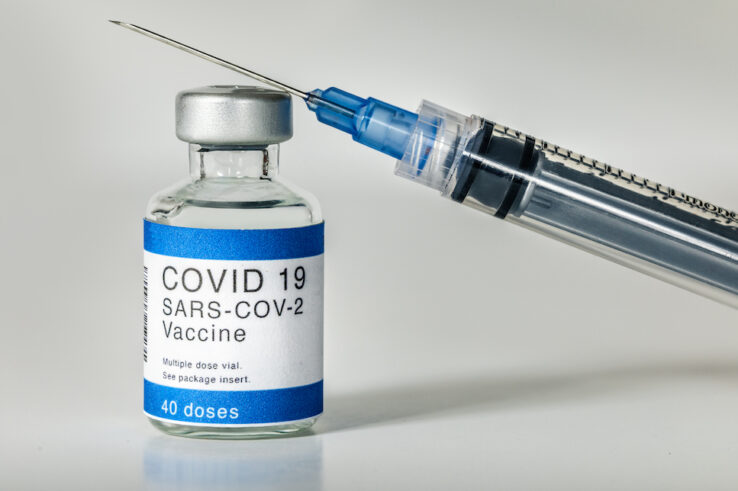
By Alisa Kim
The remarkable speed with which vaccines for COVID-19 were developed speak to global cooperation among scientists and unprecedented investment by governments aimed at finding a panacea for the health crisis. Before such vaccines were approved, they were studied in clinical trials with tens of thousands of people from around the world. Participants in the Phase 3 trials for both Pfizer and Moderna were diverse in age and ethnicity; some had chronic conditions including high blood pressure, diabetes and diseases of the lung, liver or kidney.
Not included in these trials, however, were people with immune-mediated inflammatory diseases, notes IHPME assistant professor Dr. Jessica Widdifield. These are conditions arising from abnormal activity of the immune system that result in chronic inflammation causing damage to the skin, joints, gut and other organs. People with these conditions are often on therapies that alter their immune system and may have a lower immune response to the COVID-19 vaccines; thus, it was a priority to evaluate the effectiveness of the vaccines in this patient population, she says.
Widdifield led research showing two doses of mRNA-based COVID vaccines were more than 90% effective against hospitalization and death in people with certain with immune-mediated inflammatory diseases, compared to unvaccinated people with the same conditions. The study, published in Lancet Rheumatology, is the largest of its kind.
“Based on the preliminary immunogenicity studies, there were concerns these types of patients weren’t mounting enough protection and the vaccine effectiveness would be lower in these groups. We found reassuring results that the vaccines were quite effective at preventing serious COVID-19 outcomes,” says Widdifield.
The researchers, including IHPME faculty Drs. Eric Benchimol and Lihi Eder, used Ontario health records to identify the vaccination status and outcomes of people with rheumatoid arthritis, ankylosing spondylitis (a type of arthritis that affects the spine), psoriasis (an inflammatory skin condition), and inflammatory bowel disease who were tested for COVID-19 between March 1 and Nov 22, 2021.
They found two doses of mRNA vaccines was between 92% and 97% effective against severe outcomes during the study period. Overall vaccine effectiveness against infection with the virus was more than 79% across the four patient populations. They also found protection from infection waned slightly over time, but vaccination remained effective even beyond 120 days after the second dose, and rebounded upon receipt of a third dose.
The research demonstrates vaccines are indeed highly effective at preventing serious outcomes for people with immune-mediated inflammatory diseases, but may not work as well at stopping infection relative to the general population. This is important because a prior study from these researchers showed people with these conditions are at higher risk of hospitalization with COVID-19 owing in part to their underlying conditions. Moreover, she and her colleagues have found rapid uptake of one and two doses of COVID-19 vaccines in these patient populations in Ontario, but receipt of third doses has been slower.
Widdifield hopes the study will provide clinicians and patients with evidence to inform decision-making. “Rheumatologists, gastroenterologists, dermatologists—these are the providers that care for these types of patients. People should consult with their health care provider prior to vaccination to discuss immunosuppressive medication management and timing in relation to their vaccination in order to help amplify vaccine response.”
Related News

Sign up for IHPME Connect.
Keep up to date with IHPME’s News & Research, Events & Program, Recognition, e-newsletter.
Subscribe to Connect Newsletter
Get in Contact
Communications
Marielle Boutin
Email Address: ihpme.communications@utoronto.ca





